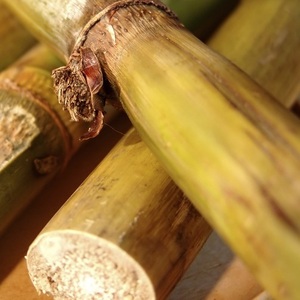UNICA: Ethanol production down in early June, sales flat

July 7, 2021
BY Erin Krueger
UNICA, the Brazilian sugarcane industry association, has announced the volume of sugarcane processed by mills in the south-central region of Brazil was down 14 percent during the first half of June. Ethanol production was also down, but sales were flat.
Mills in the region processed 35.96 million tons of sugarcane during the first half of June, down 14 percent when compared to the same period of last year. Since the beginning of the current harvest season, which began April 1, mills in the south-central region have processed 165.59 million tons of sugarcane, down 11.58 percent when compared to the same period of 2020.
Ethanol production for the first half of June was at 1.69 billion liters (446.45 million gallons), down 8.7 percent when compared to the same period of last year. Of that volume, 975.2 million liters was hydrous ethanol, down 23.99 percent, and 710.65 million liters was anhydrous ethanol, up 26.11 percent.
Advertisement
Advertisement
Ethanol production since the beginning of the current harvest season has reached 4.96 billion liters, down 15.26 percent. Anhydrous ethanol accounted for 2.56 billion liters of that volume, up 15.02 percent.
Corn ethanol production reached 119.71 million liters during the first half of June, up 77.27 percent when compared to the same period of 2020. Corn ethanol production since April 1 has reached 592.51 billion liters, up 41.65 percent.
Advertisement
Advertisement
Mills in the south-central region sold 1.19 billion liters of ethanol during the first half of June, flat with the same period of 2020. Domestically, sales of hydrous ethanol were at 702.98 million liters, down 5.97 percent, and sales of anhydrous ethanol were at 419.9 million liters, up 31.59 percent.
Since the beginning of the current harvest season, mills in the south-central region have sold 5.81 billion liters of ethanol, up 11.6 percent when compared to the same period of last year. Domestic sales reached 5.53 billion liters, up 13.84 precent, while exports were at 279.66 million liters, down 19.68 percent.
Related Stories
Bangkok Airways Public Company Limited has officially announced the adoption of sustainable aviation fuel (SAF) on its commercial flights, reinforcing Thailand’s green aviation industry. The initiative took effect starting July 1, 2025.
Avalon Energy Group LLC and Sulzer Chemtech have signed a strategic alliance and partnership agreement to scale up the production of SAF. Under the agreement, Avalon has selected BioFlux technology for its portfolio of SAF projects.
Neste and DHL Express have strengthened their collaboration with the supply of 7,400 tons (9.5 million liters) of neat, i.e. unblended, Neste MY Sustainable Aviation Fuel to DHL Express at Singapore Changi Airport starting July 2025.
CoBank’s latest quarterly research report, released July 10, highlights current uncertainty around the implementation of three biofuel policies, RFS RVOs, small refinery exemptions (SREs) and the 45Z clean fuels production tax credit.
The USDA significantly increased its estimate for 2025-’26 soybean oil use in biofuel production in its latest World Agricultural Supply and Demand Estimates report, released July 11. The outlook for soybean production was revised down.
Upcoming Events










